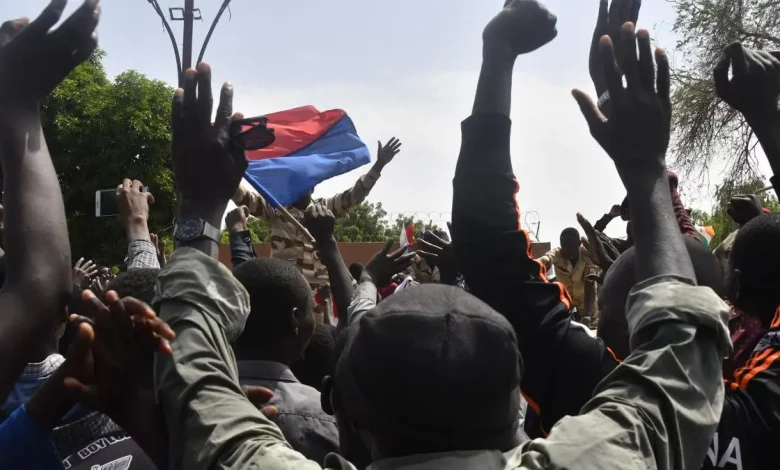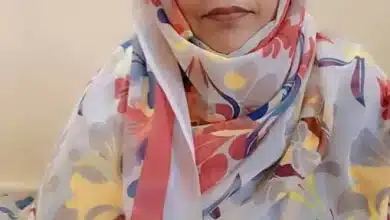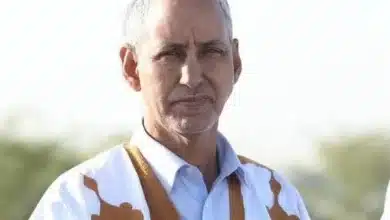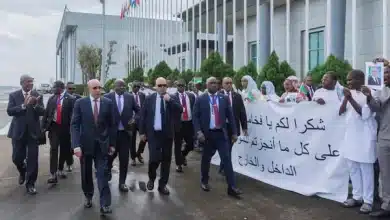Niger’s coup is a Deja vu, and will not be the last

Niger’s coup is a Deja vu, and will not be the last
By Amat Jeng & Sait Matty Jaw – standard.gm
It is a statement with a powerful political valence when the US Secretary of State, Antony Blinken, called Niger ‘a model of democracy.’ Five months after Blinken’s visit, Niger descended into chaos: President Mohamed Bazzoum was toppled.
This has brought the number of coups and attempted coups in Africa to 41 in just thirteen years. Within four years, West Africa and the Sahel region have witnessed five successful and two failed coups. The coup in Niger, however, caught many people off guard. Nevertheless, it is not going to be the last coup for Niger or the region before 2030 – Ceteris paribus.
In the 1980 and 1990s, when disgruntled military men (they are often men) stormed presidential palaces and took control of state TVs and airports in Ghana, Burkina Faso, Guinea Conakry, Mauritania, Mali, Sierra Leone, and The Gambia, they had to resort to repressive measures to gain popular support from the population. This is no longer the case: Recent coups in the region have received unprecedented support from their respective citizens.
We do not aim to discuss all coups. However, Niger is a particularly interesting phenomenon, not because it is the latest, but because it was praised by the West as a ‘model of democracy’ and that the military coup is about to plunge West Africa into a sub-regional crisis not seen since the end of the Liberian and Sierra Leonean wars.
Cosmetic Democracy
Niger has been hailed by the US as ‘a model of democracy.’ But in all senses of the word, Niger is far from such. Members of civil society groups such as M62 are languishing in jail after anti-French protests last year. M62 is an umbrella of civil society organisations that has been actively voicing its concern about corrupt practices in both the previous and current government, and it is known for its anti-France rhetoric.
It is true that Niger has made some promising democratic gains after its first peaceful power transfer in 2021, the first since the country gained independence in 1960. Afrobarometer 2021/2022 survey data shows that 52% of Nigeriens rate their country as ‘full democracy or a democracy with minor problems.’ Equally, 53 percent is satisfied with how democracy works in their country. However, the euphoria which greeted Niger’s transition has fallen short of addressing the social contract and the security crisis that gripped the country.
For the military, the democratic gains that Niger is praised for, have not managed to help the country wade off terrorism spreading across its borders. President Bazzoum might be a democrat, but it is his image as a bulwark against Russia’s influence that earned him that image, not because Niger is ‘a model of democracy.’
Neglected Youth
In 2017, 68 percent of the youth in Niger was not going to school or a job. In 2018, more than 50 percent of the population lived in poverty – that is over 10 million people, mostly youth. The country made some progress, yet today, Niger holds a notorious position among the world’s poorest countries, with a staggering 42.9 percent of its population living below the poverty line, despite its renowned uranium export to France.
In the early 2000s, France stopped all coal mining on French soil for fear of environmental consequences. Niger eventually became the second uranium exporter to France, after Kazakhstan. With its 56 nuclear reactors and eighteen power plants, France relies on uranium to provide 75% of electricity to its citizens, without which seven out of ten people will go to sleep in the dark in France. Right now, as we write, only about 5 out of 10 people in Niger have access to electricity, while 10 out of 10 people in France have access to electricity.
Access to essential services remains a significant challenge for the people of Niger. In 2019, multi-deprivation, which encompasses various dimensions of welfare such as health, education, access to electricity, water, sanitation, housing conditions, and asset ownership, was at 60 percent in a country that contributes more than 20 percent of uranium export to France. In a global list of poverty rankings, Niger is placed among the lowest, reflecting the severity of its economic disparities. In 2015, the UN Human Development Index ranked Niger 187 out of 188 countries in terms of poverty.
Wealth disparities in Niger are evident, exacerbating inequalities that are most visibly seen in the limited access, or outright lack thereof, to basic facilities and services for many citizens. Despite gaining independence in 1960, the nation continues to struggle with a patchwork of economic and social development.
Military intervention in politics, almost everywhere, is motivated by the disaffection among the people with the status quo. Therefore, it is no surprise that many of the youths in Mali, Niger, and Burkina Faso support a replacement of the status quo. However one thinks that the youths are caught in the allure of illusions about what coups can bring, they see coups as the promise of a victory over their downtrodden state, and as an opportunity to assert their respective countries’ sovereignty, particularly their relationship with colonial powers.
Domino Effect
Between 2019 and 2022, West Africa alone had seen four successful coups (Mali 2021 & 2022, Guinea Conakry 2021, Burkina Faso 2022). Ecowas has evidently failed to restore constitutional order in all previous coups. This dichotomy (the success of the coups and the failure of Ecowas) has set precedent for broader military implications in the region.
The military understands the short-term consequences of a coup, but more importantly, it understands that it does not need to repress its way to acceptance by the population as was the case in the 1980s and 1990s. Therefore, the military is less encumbered by toothless regional and international bodies.
The East-West Divide
Africa is seemingly getting back to the geopolitical quagmire that characterized the continent throughout the Cold War era when it used to be a visual symbol of the rivalry between the West and the Soviet Union. The international rule-based order is experiencing a rude awakening that has never been seen since the Berlin Wall fell and the Soviet Union collapsed in 1991.
Most of the young people brandishing Russian flags in Niger, Mali, and elsewhere in Africa, are not old enough to recall the dynamics of the Cold War. However, they have undoubtedly seen or heard about how the West, France in particular (remember, all coups in West Africa took place in former French colonies), have used strategies such as Françafrique or Eurafrica to maintain its economic domination over Africa and prop up dictators on the continent.
These young people have also seen how those in power have continued to use backdoor deals that only enrich themselves. An example is the negotiations leading to the building of a $100m drone centre in central Niger by the US. The centre will cost $10m a year to operate. In the eyes of Nigeriens, none of the center’s activities or its revenue will trickle down to changing their daily lives.
The East-West divide also helps to explain why Yevgeniy Prigozhin, leader of the Wagner mercenary group, is praising the coup. Much like the U.S used Blackkwater in Iraq and elsewhere to carry out its operations, Russia is also employing Wagner to do its dirty work in Africa. Russia is at that point of its history where it has to prove its presence on the global stage. Niger on the other hand is the last U.S reliable ally in the Sahel region, and therefore, President Bazzoum was seen as the last strong man with an anti-Russia leadership approach. All this makes the coup more critical for the region.
The Neoliberal Post-conflict Approach
Democratic reforms in the region have not managed to dramatically strengthen the social contract and state-society relations. As one of us had written somewhere, the neoliberal post-conflict reconstruction approach, largely supported by the West and its subordinate institutions, has failed to alter the perceptions of a remote state in West Africa. This failure has resulted in the creation of a cocktail of distant elite as well as political naïveté that continuously ignores the youth.
Understandably, coups and counter-coups are not the solution to Africa’s governance problem. However, some of the coups in West Africa did not just happen in a vacuum. In some instances, like Guinea and Burkina Faso, they did occur because those in power were destroying the democratic institutions they helped to create. According to a survey by Afrobarometer, over half (53 percent) of Africans express support for military intervention when elected leaders abuse their office. A recent survey by Afrobarometer also shows that 67 percent in Niger says the armed forces can intervene when leaders abuse their power.
Niger’s fall from being a ‘model of democracy’ to a country on the brink of experiencing the worst political crisis the region has seen for decades, is a lingering proof that there is no longer anything too important than strengthening state-society relations. By this, we mean the daily interactions between state institutions and citizens to negotiate how public authority is exercised and how it can be influenced by the people. Without putting much effort into this and strengthening the relationship between those who govern and those governed, reforms will fail and coups will continue to happen.
Sait Matty Jaw, executive director, Centre for Research and Policy Development (CRPD)
Source: standard.gm




